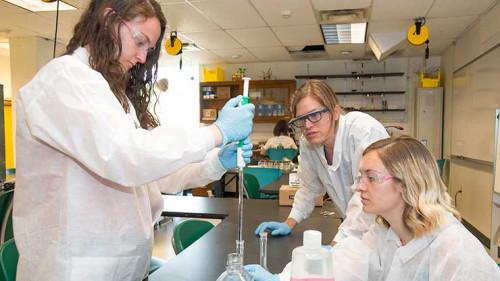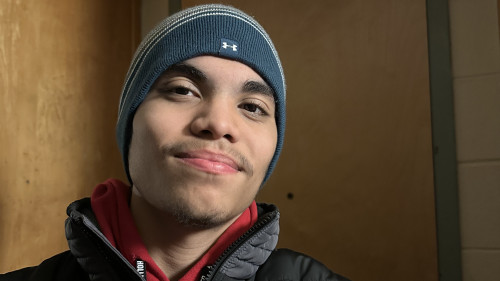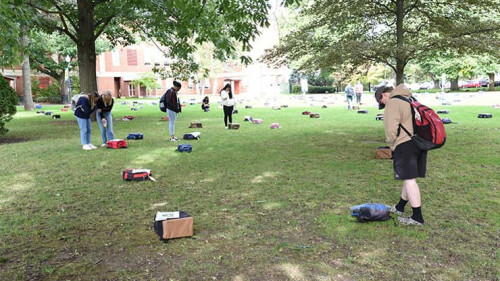
Rebecca Davis ‘15
The “Great Recession” officially ended five years ago, in the summer of 2009. But those studying the labor market know that it isn’t improving the way it should be. CURCA Summer Scholar Melissa Fichera ’15 has been working with Assistant Professor of Economics Aaron Pacitti Ph.D. to analyze the data behind our nation’s slow recovery and has learned that it means bad news for unemployed workers.
In their article recently published in the Huffington Post, Fichera and Pacitti detail the cost of job loss when someone becomes unemployed in 2014. They found that even in this recovery period, an unemployed person can expect to be without a job for nearly 40 weeks, the longest duration since the Great Depression. When they do find a new job, workers are also expected to earn just half of their previous weekly income. On top of that, it’s incredibly difficult to find a new job.
“Going back into the workforce, those who have been unemployed for a long time are “branded,” so the longer you’ve been unemployed the less likely you are to be rehired,” Pacitti said. “It’s a continuous cycle. Millions of workers are just completely marginalized.”
It’s not a short term set-back either. According to Fichera’s findings, there is a constant percentage of income lost and it can last up to 20 years after initially losing a job.
Fichera and Pacitti disagree with the federal government’s attempts to cut funding to unemployment insurance and food stamps, which they say make up less than 1% of government spending.
Instead, they propose that the U.S government create jobs for the unemployed. They say that effort will replace long-term welfare with productive jobs where people can continue to build skills and network with others while also removing the stigma associated with unemployment.
“There’s this idea of rugged individualism we haven’t shed yet.” Fichera said. “But the truth is, no matter how hard you work, there are blocks in the economy. You get so far and you plateau, or you lose your job. That ‘pick yourself up by your bootstraps’ concept just doesn’t work.”
The faculty-student team is in the process of producing a scholarly article they expect to publish in an academic journal later this year. Fichera is taking what she learned working with Pacitti and hopes to apply it in either graduate school or law school after she finishes her undergraduate studies at Siena.

